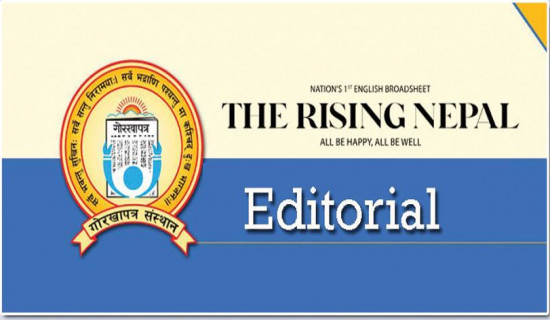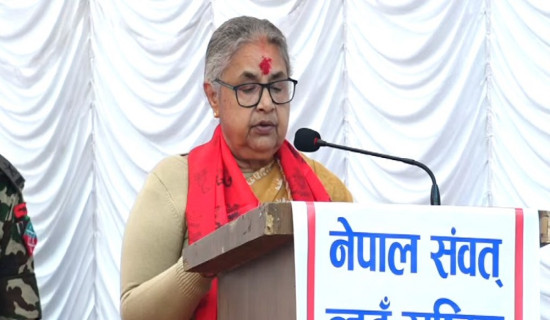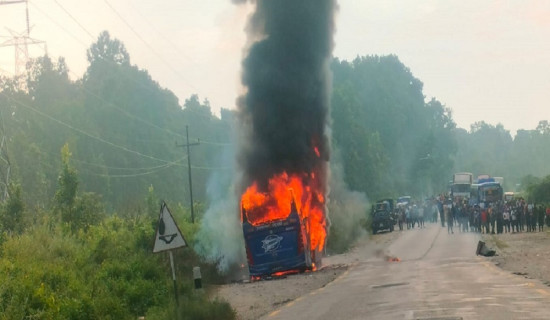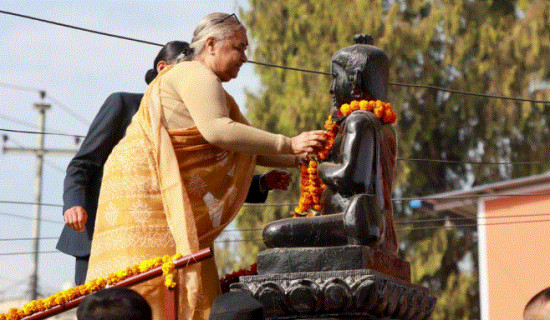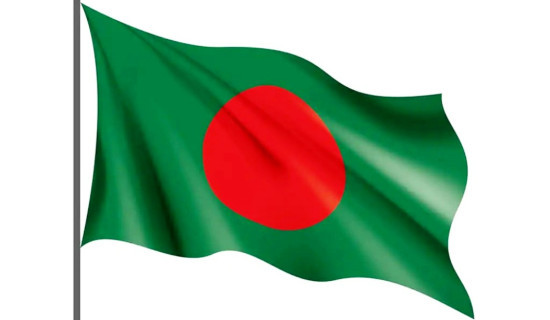- Wednesday, 22 October 2025
Enable Nepali Workers
In recent years, Nepal has seen a heightened focus on labour migration, with Prime Minister Pushpa Kamal Dahal, 'Prachanda,' taking the lead in addressing these concerns by engaging in constructive discussions with Nepali diplomatic missions abroad. This initiative demonstrates the government's commitment to address the hardships experienced by its citizens working in foreign countries. While Prime Minister Prachanda's emphasis on safeguarding Nepali workers is commendable, it is essential to acknowledge that labour migration issues have persisted for years, and many previous promises have not been fully realised. One of the primary concerns raised by the Prime Minister is the need for effective labour diplomacy. However, this is not a new concept, and Nepal has struggled to protect its workers adequately.
The government needs to outline specific measures and strategies to improve diplomatic relations and ensure the rights of Nepali citizens abroad. In this regard, the Prime Minister, after holding extensive discussions, has directed the chiefs of the Nepali diplomatic missions abroad to resolve the problems faced by Nepali migrant workers without any hesitation and delays. There is a significant contribution from remittances to Nepal's economy. While this is undoubtedly true, overdependence on remittances is not a sustainable long-term strategy. Nepal should focus on creating more job opportunities within the country to reduce the need for labour migration and provide citizens with viable employment options at home as well. The history of discussions and interactions on labour migration in Nepal is replete with promises that, regrettably, often remain unfulfilled. What Nepal truly requires at this juncture are concrete solutions and well-crafted action plans, not just elaborate overviews.
Over the years, there have been instances where the support and protection offered by these missions to Nepali migrant workers have fallen short of expectations. Therefore, it is imperative that Nepali missions work hard, as per the Prime Minister's directives, for the establishment of a more robust support system for Nepali migrants. To address the issues faced by Nepali workers abroad effectively, the government should establish a transparent mechanism for listening to the complaints and protecting the rights of Nepali workers overseas. This includes providing legal assistance, access to consular services, and faster response in cases of emergency. While remittances are crucial, Nepal must diversify its economy to reduce its vulnerability to economic crises. Encouraging foreign investment, promoting tourism, and supporting local industries can create alternative income sources and reduce the country's reliance on remittances.
Efficient consular services based on the latest information technology can greatly assist Nepali workers abroad. Streamlining paperwork, making services more accessible online, and offering guidance on legal and employment matters will improve the overall experience for migrants. The government should prioritise the review and renegotiation of labour agreements with foreign countries to better protect the rights and interests of Nepali workers. These agreements should include provisions for minimum service facilities and social security. Prime Minister Prachanda's directive to prioritise the welfare of Nepali workers abroad is a positive step and it is crucial to make sure that the government moves beyond rhetoric and takes concrete actions to address issues in labour migration. By strengthening labour diplomacy, diversifying the economy, improving consular services, and reviewing labour agreements, Nepal can better protect its citizens working abroad and ensure their contributions lead to a more prosperous nation.



